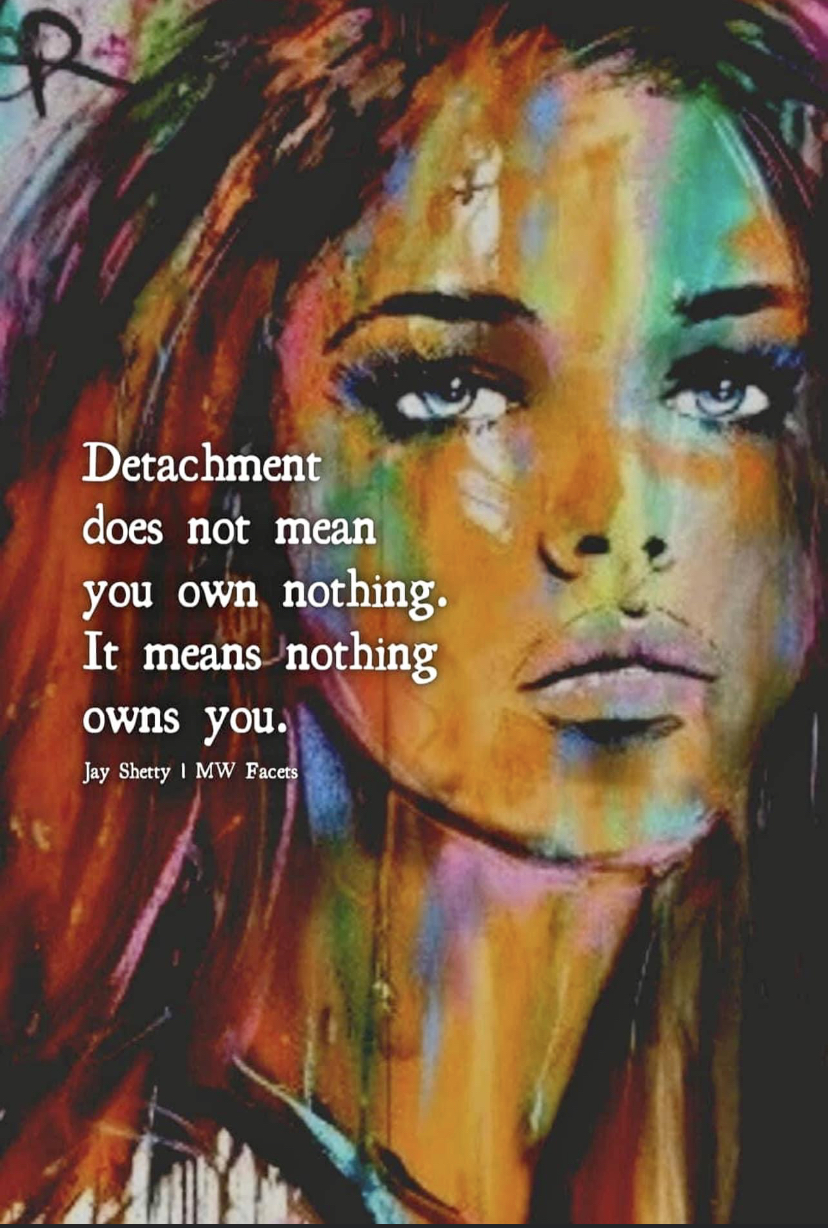
Once upon a time in a quaint little town called Serendipityville, there lived a man named Charlie . Now, Charlie was an eccentric fellow with a taste for adventure and a peculiar outlook on life. He was known for his witty remarks, his dapper mustache, and his obsession with the concept of detachment.
Charlie had a reputation for being an impeccable collector of curiosities. His house was a treasure trove of oddities from around the world. From antique clocks that didn’t tick to a collection of mismatched socks, Charlie possessed it all. People would often ask him, “Charlie, how can you be so attached to your possessions and still claim to be detached?”
With a twinkle in his eye and a mischievous grin, Charlie would reply, “Ah, my friends, detachment doesn’t mean you own nothing; it means nothing owns you. Let me tell you a tale to explain.”
One day, Charlie received a mysterious invitation to a masquerade ball at the grand estate of the enigmatic Lady Olivia. Intrigued by the unknown, Charlie donned his finest suit, adjusted his top hat, and set off to the ball, leaving his precious possessions behind.
As he entered the opulent ballroom, Charlie was greeted by a whirlwind of extravagance and glamour. It seemed like everyone was adorned with jewels, designer gowns, and flashy accessories. Amidst the crowd, Lady Olivia, a woman of grace and poise, stood at the center of attention.
Charlie, with his quirky charm, approached Lady Olivia and struck up a conversation. They delved into discussions about life, philosophy, and the nature of attachment. Lady Olivia, captivated by Charlie’s unique perspective, invited him to explore her extensive art collection.
The art gallery was a mesmerizing sight, filled with priceless paintings, sculptures, and artifacts. Charlie admired each masterpiece, yet he felt no desire to possess any of them. He reveled in the beauty and creativity without the weight of attachment.
As the night wore on, Charlie and Lady Olivia danced together, twirling through the elegant ballroom. In their conversation, Lady Olivia confessed her own struggles with detachment, having been surrounded by opulence her whole life. Charlie, with his quick wit, quipped, “My dear, detachment is like dancing. You glide through life’s intricacies, appreciating the steps without clinging to the rhythm.”
With those words, Lady Olivia eyes sparkled with newfound understanding. She realized that true detachment was not about renouncing wealth or possessions but about freeing oneself from their control.
As the clock struck midnight, the magical evening came to an end. Charlie bid farewell to Lady Olivia, leaving behind a sense of enlightenment in her heart. He returned to his humble abode, where his peculiar collection awaited him.
As Charlie gazed upon his curiosities, he chuckled to himself. “Ah, my dear possessions, you may bring me joy, but you don’t define me. I appreciate your charm, but you hold no power over me. Detachment is the key to freedom, and I am its mischievous ambassador.”
From that day forward, Charlie continued his adventures, collecting oddities, but never allowing them to possess him. His wit and wisdom spread through Serendipityville, inspiring others to embrace the true meaning of detachment.
And so, in the whimsical town of Serendipityville, Charlie became a legend—a symbol of liberation from the chains of possession. His legacy reminded everyone that detachment wasn’t about owning nothing; it was about allowing nothing to own
In a world obsessed with material possessions and societal expectations, the concept of detachment stands as a beacon of wisdom and liberation. While some might perceive detachment as relinquishing ownership and attachment to worldly belongings, its true essence lies in understanding that nothing should have a stranglehold over our lives. Detachment empowers us to transcend the clutches of possessions, relationships, and external influences, enabling us to discover true freedom and self-mastery. Let’s delve into the profound meaning behind the statement, “Detachment doesn’t mean you own nothing, it means nothing owns you,” exploring the nuances of detachment with wit, insight, and an ounce of humor.
In a society driven by consumerism, we often define ourselves by what we own. From flashy cars to designer clothes, we seek validation through the acquisition of material possessions. However, this misguided pursuit leads to an illusion of ownership where we end up being owned by our possessions. Our lives become entangled in a web of attachment, creating a constant need for more. Detachment liberates us from this cycle of ownership, reminding us that we don’t truly own anything; everything is transient. So, why let these ephemeral possessions own us?
Detachment extends beyond material possessions to encompass our relationships as well. We often confuse attachment with love, believing that possessing someone emotionally or controlling their actions is a sign of affection. However, true love thrives in an atmosphere of freedom and acceptance. Detachment teaches us to cherish relationships without clinging, allowing individuals to grow and flourish independently. It liberates us from the need to control or possess, fostering healthier and more fulfilling connections. As the saying goes, “If you love someone, set them free.”
Life is a constantly evolving journey, filled with both joys and sorrows. Detachment serves as a guiding principle to navigate the unpredictable waves of existence. When we detach ourselves from the outcome of situations, we can approach life with equanimity and resilience. It reminds us that happiness doesn’t depend on external circumstances but on our internal state of being. Detachment empowers us to embrace the present moment, appreciating life’s fleeting beauty without being defined by its transitory nature.
Society bombards us with expectations, dictating how we should look, behave, and achieve success. The pressure to conform can be suffocating, leading us to define ourselves by societal standards. However, detachment offers an escape from this societal grip. It liberates us from the fear of judgment and the need for validation, allowing us to cultivate our own authentic identity. By detaching ourselves from external expectations, we can pursue our passions, embrace our quirks, and revel in the delight of self-discovery.
Detachment brings a sense of lightness and tranquility to our lives. When we let go of the need to control, possess, or be possessed, we free ourselves from the burden of attachment. We become unburdened by the weight of expectations and find solace in the simplicity of the present moment. Detachment allows us to dance through life with a lightness of being, unencumbered by the baggage of ownership and attachment.
So, detachment,contrary to common misconceptions, is not about owning nothing but about preventing anything from owning us. By practicing detachment, we break free from the shackles of ownership, control, and societal expectations. We discover true liberation, enabling us to navigate life’s ups and downs with grace, humor, and an unwavering sense of self
